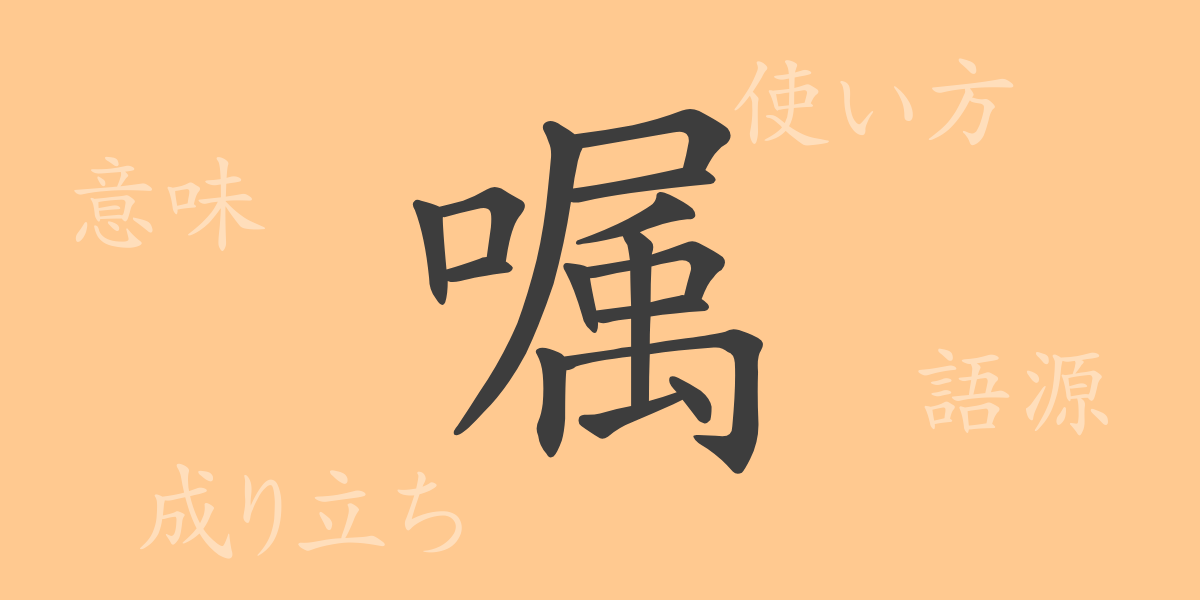The richness of the Japanese language is evident in its complex Kanji system, where each character carries its own unique history and meaning. One such Kanji, ‘嘱’ (ショク), is familiar to many Japanese people and is frequently used in everyday life and business contexts. This article delves into the origins, meanings, usages, and readings of ‘嘱,’ as well as related idioms and phrases, enriching our understanding of this character deeply rooted in Japanese culture.
Origins of 嘱 (ショク)
The Kanji ‘嘱’ originated from ancient China, combining the radical ‘口’ (mouth) with ‘属’ (belonging). Originally, ‘属’ provided the phonetic component, while ‘口’ added semantic meaning, depicting the act of verbally entrusting or requesting something. This combination has historically been used to signify important acts of entrustment between people in ancient Chinese texts.
Meaning and Usage of 嘱
‘嘱’ carries meanings such as ‘to ask,’ ‘to order,’ and ‘to entrust.’ It is used when requesting something from someone or entrusting someone with a matter. In business documents and legal terminology, it appears in terms such as ‘嘱託’ (しょくたく), commonly used to denote entrusting someone with specific duties or roles. It also appears in personal contexts, representing trust and responsibility.
Readings, Stroke Count, and Radical of 嘱
The Kanji ‘嘱’ has several notable features:
- Readings: On’yomi (おんよみ) ‘ショク’, Kun’yomi (くんよみ) ‘たの.む’
- Stroke Count: 15 strokes
- Radical: Mouth (口部(くちへん))
Phrases, Idioms, and Proverbs Involving 嘱
There are numerous phrases and idioms that include ‘嘱,’ each reflecting its meanings of entrusting or requesting:
- 嘱託 (しょくたく): Entrusting someone with a task or duty, or the duty itself.
- 遺嘱 (いしょく): Instructions or wishes left for after one’s death, commonly known as a will.
- 嘱望 (しょくぼう): To hope or expect greatly from someone, indicating a state of being highly anticipated.
Conclusion on 嘱
The Kanji ‘嘱’ plays a crucial role in expressing the act of entrusting or asking, prevalent in both business environments and personal relationships. Through this article, you should gain a deeper understanding of ‘嘱,’ its uses, and its significance in various phrases and contexts. Recognizing the use of ‘嘱’ can enhance your appreciation of the subtleties of Japanese language and culture.

























